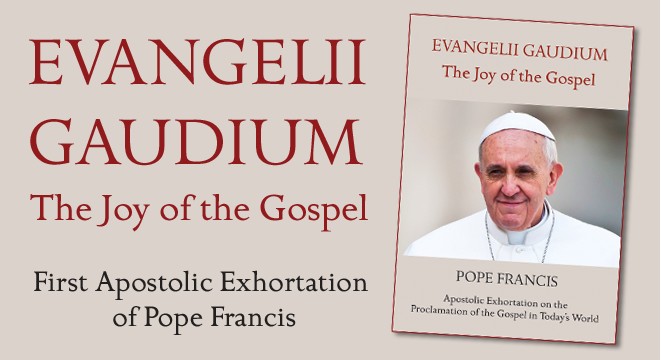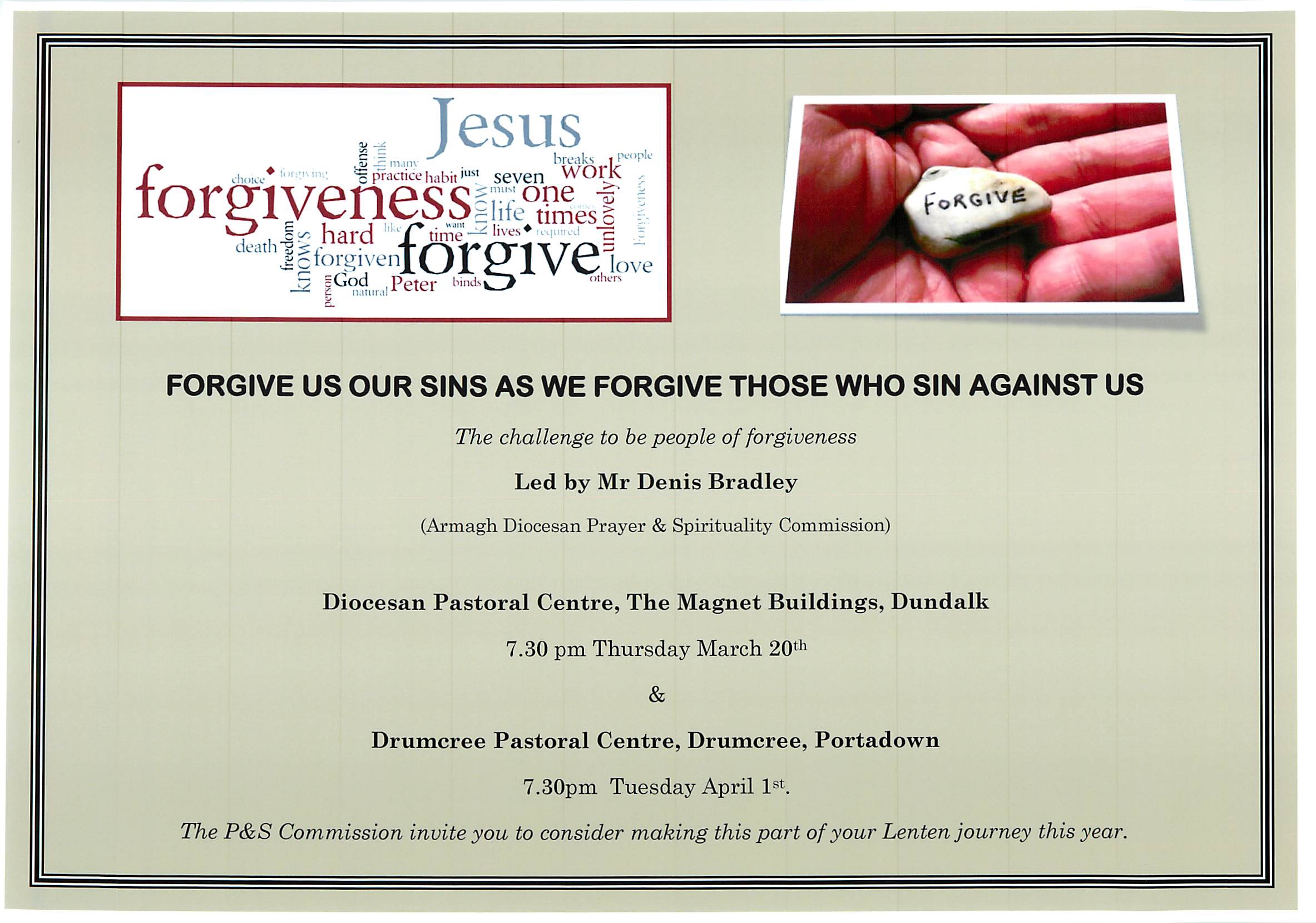Readings for Wednesday 26 March 2014 (3rd Week of Lent)
Deut 4:1, 5-9. Ps 147:12-13, 15-16, 19-20, R/ v 12. Mt 5:17-19. www.catholicbishops.ie/readings.
The Law is a great treasure to be safely guarded and to be handed on as a sacred trust. In the new Jerusalem, the Church, the laws of Christ are not to be seen as burdens or out of date. They are the evidence of the love of Christ for us.
“We cannot be tepid disciples. The Church needs our courage in order to give witness to truth.”
Follow Pope Francis on Twitter @Pontifex.
Excerpt from Evangelii Gaudium The Joy of the Gospel
“ The Church which “goes forth” is a community of missionary disciples who take the first step, who are involved and supportive, who bear fruit and rejoice. An evangelizing community knows that the Lord has taken the initiative, he has loved us first (cf. 1 Jn 4:19), and therefore we can move forward, boldly take the initiative, go out to others, seek those who have fallen away, stand at the crossroads and welcome the outcast. Such a community has an endless desire to show mercy, the fruit of its own experience of the power of the Father’s infinite mercy. Let us try a little harder to take the first step and to become involved. Jesus washed the feet of his disciples. The Lord gets involved and he involves his own, as he kneels to wash their feet. He tells his disciples: “You will be blessed if you do this” (Jn13:17). An evangelizing community gets involved by word and deed in people’s daily lives; it bridges distances, it is willing to abase itself if necessary, and it embraces human life, touching the suffering flesh of Christ in others. Evangelizers thus take on the “smell of the sheep” and the sheep are willing to hear their voice. An evangelizing community is also supportive, standing by people at every step of the way, no matter how difficult or lengthy this may prove to be. It is familiar with patient expectation and apostolic endurance. Evangelization consists mostly of patience and disregard for constraints of time. Faithful to the Lord’s gift, it also bears fruit. An evangelizing community is always concerned with fruit, because the Lord wants her to be fruitful. It cares for the grain and does not grow impatient at the weeds. The sower, when he sees weeds sprouting among the grain does not grumble or overreact. He or she finds a way to let the word take flesh in a particular situation and bear fruits of new life, however imperfect or incomplete these may appear. The disciple is ready to put his or her whole life on the line, even to accepting martyrdom, in bearing witness to Jesus Christ, yet the goal is not to make enemies but to see God’s word accepted and its capacity for liberation and renewal revealed. Finally an evangelizing community is filled with joy; it knows how to rejoice always. It celebrates every small victory, every step forward in the work of evangelization. Evangelization with joy becomes beauty in the liturgy, as part of our daily concern to spread goodness. The Church evangelizes and is herself evangelized through the beauty of the liturgy, which is both a celebration of the task of evangelization and the source of her renewed self-giving.” – Evangelii Gaudium 24.
Audio Reflection for Lent 2014 – Kate McQuillan from Trócaire
Daily Lenten Prayers
A Child’s Prayer of Thanks for Family
Lord Jesus,
you also needed a mother and a father to grow.
Thanks for my parents.
What would my life be like without them?
Help me to always be grateful for
the gift which they are to me.
Amen
Rev Peter Murphy, The Family Prayer Book, Veritas
Prayer for someone ill in hospital
All-powerful and ever-living God,
the lasting health of all who believe in you
hear us as we ask your loving help for the sick;
restore their health,
that they may again offer joyful thanks in your
Church.
We ask this through Christ, our Lord.
Amen
The Veritas Book of Blessing Prayers
The challenge to be people of forgiveness
Reminder about event on 1 April in the Archdiocese of Armagh – see below:
Resources on the Vatican website for Lent 2014
The Vatican is collating all the resources for Lent 2014 on a special link on the home page of www.vatican.va. It includes the catechesis, addresses and homilies of the Holy Father, information on liturgical events and video and other multimedia content. Click here to access it.
The Meaning of Lent
The English word ‘Lent’ comes from the Anglo-Saxon word Lencten, meaning ‘Spring’. In other languages the word comes from the Latin, Quadragesima – a period of 40 days. In the Christian tradition the forty days is understood to refer to a time of intense prayer and preparation; we remember the biblical stories of Noah and the flood of 40 days, the forty years the Israelites spent wandering in the wilderness and Christ’s forty day fast in the desert in preparation for his earthly ministry.








